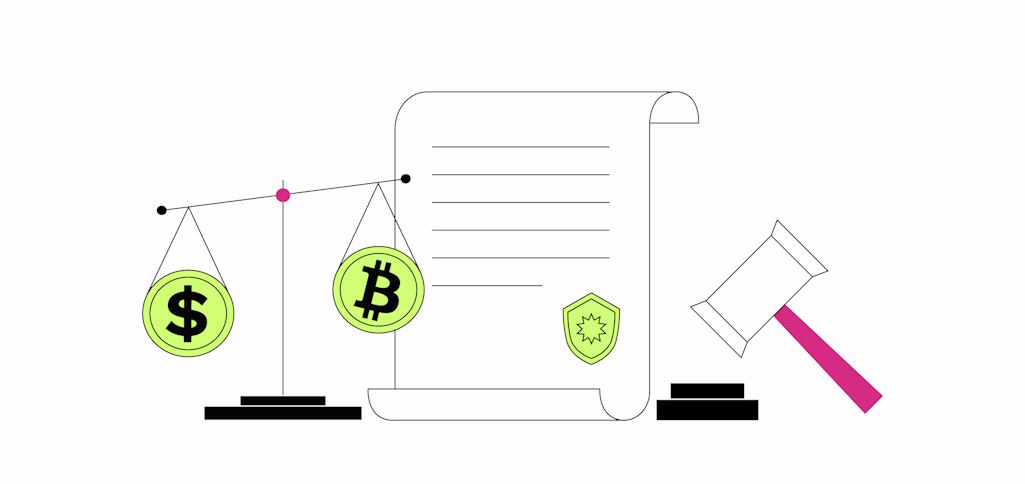
Token investments have emerged as a prominent and dynamic investment avenue, offering exciting opportunities across various industries. As the world embraces the transformative potential of blockchain technology, the legal and regulatory landscape surrounding token investments continues to evolve. Navigating this landscape is crucial for investors seeking to capitalize on the potential returns offered by tokens while mitigating regulatory risks. Understanding the complexities of regulatory frameworks, identifying potential pitfalls, and adopting proactive compliance measures are essential steps in ensuring a secure and compliant token investment strategy.
Regulatory Environment for Token Investments
Overview of existing regulatory frameworks:
The regulatory landscape for token investments is multifaceted and continuously evolving. Various jurisdictions have taken different approaches to regulate tokens based on their characteristics and intended use. Some countries have implemented comprehensive frameworks, while others are still in the process of formulating regulations. Existing regulatory frameworks primarily focus on aspects such as securities classification, anti-money laundering (AML) compliance, investor protection, and consumer rights.
Challenges and complexities in regulating token investments:
Regulating token investments poses unique challenges due to the decentralized nature of blockchain technology and the diverse range of tokens available. Determining whether a token qualifies as a security or a utility token often requires careful analysis, as the classification can have significant legal and compliance implications. Moreover, enforcing regulations in the decentralized and global nature of token markets can be challenging for regulatory authorities.

Key regulatory bodies and their roles:
Regulatory bodies play a crucial role in overseeing token investments and ensuring compliance with applicable laws. The specific regulatory bodies vary across jurisdictions, but they typically include financial regulatory authorities, securities commissions, and central banks. These entities have the responsibility to monitor token offerings, protect investors, combat financial crimes, and maintain market integrity.
Recent developments in token investment regulations:
In recent years, there have been notable developments in token investment regulations worldwide. Many countries have introduced or updated regulations to address the growing popularity of tokens and the associated risks. For example, some jurisdictions have implemented specific licensing frameworks for cryptocurrency exchanges and established regulatory sandboxes to foster innovation while maintaining regulatory oversight. Additionally, there is an increasing focus on addressing AML and KYC requirements to prevent illicit activities associated with token investments.
Common Regulatory Risks in Token Investments
Securities regulation and token classification:
One of the primary regulatory risks in token investments is the classification of tokens as securities. Securities regulations vary across jurisdictions, and misclassifying a token can have serious legal consequences. Determining whether a token is a security or a utility token requires careful evaluation of factors such as the token’s economic rights, the presence of an investment contract, and the expectation of profit from the efforts of others. Failure to comply with securities regulations can lead to penalties, legal disputes, and reputational damage.
Compliance with anti-money laundering (AML) and know your customer (KYC) requirements:
Token investments are subject to AML and KYC regulations aimed at preventing money laundering and terrorist financing. Token issuers and service providers must implement robust AML and KYC procedures to verify the identities of their investors and ensure transparency in transactions. Failure to comply with AML and KYC requirements can result in legal repercussions, including fines and sanctions, and can also lead to reputational damage and loss of investor trust.

Tax implications of token investments:
Token investments can have complex tax implications, as tax authorities around the world are grappling with how to classify and tax tokens. Tax treatment varies depending on factors such as the nature of the token (e.g., utility token or security token), the holding period, and the jurisdiction’s tax laws. Failure to appropriately address tax obligations can result in audits, penalties, and unexpected tax liabilities.
Consumer protection and investor rights:
Token investments expose investors to risks such as fraudulent token offerings, scams, and misleading information. Regulatory bodies strive to protect consumers and ensure fair practices in token investments. However, the decentralized and borderless nature of token markets can make it challenging to enforce consumer protection laws. Investors must exercise caution, conduct thorough due diligence, and seek legal advice to protect their rights and interests.
Cross-border regulatory considerations:
Token investments often involve cross-border transactions, which introduce additional regulatory complexities. Different jurisdictions may have conflicting regulations, creating challenges for investors and businesses operating in multiple markets. It is crucial to understand and comply with the applicable regulatory requirements of each jurisdiction involved in token investments to avoid legal risks, penalties, and regulatory scrutiny.

 FEED Token is a Blockchain Company. A team dedicated to enabling digital transformation through innovation in the Blockchain space. FEED Token’ global clientele has been consistently enraptured with its state-of-the-art business snowballing solutions across the Blockchain protocols.
FEED Token is a Blockchain Company. A team dedicated to enabling digital transformation through innovation in the Blockchain space. FEED Token’ global clientele has been consistently enraptured with its state-of-the-art business snowballing solutions across the Blockchain protocols. 